Ditapis dengan
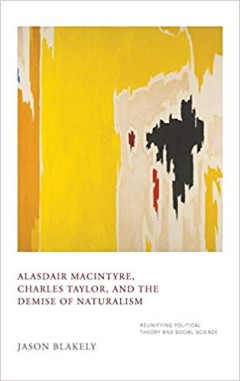
Alasdair MacIntyre, Charles Taylor, and The Demise of Naturalism
Today the ethical and normative concerns of everyday citizens are all too often sidelined from the study of political and social issues, driven out by an effort to create a more “scientific” study. This book offers a way for social scientists and political theorists to reintegrate the empirical and the normative, proposing a way out of the scientism that clouds our age. In Alasdair MacIntyr…
- Edisi
- First Print
- ISBN/ISSN
- 978-0-268-10064-3
- Deskripsi Fisik
- ix + 142 pg.; 23,5 cm.
- Judul Seri
- -
- No. Panggil
- 146 BLA a
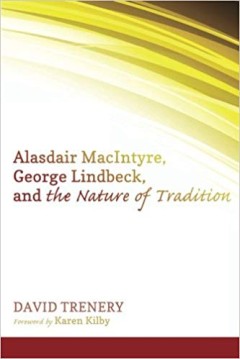
Alasdair MacIntyre, George Lindbeck and the Nature of Tradition
What should we believe, and why should we believe it? This book addresses these questions through a critical exposition of the work of the contemporary philosopher Alasdair MacIntyre and of the theologian George Lindbeck, the father of postliberal theology. The book argues that MacIntyre's philosophical development can be seen as a response to the question of how belief in a comprehensive metap…
- Edisi
- First Print
- ISBN/ISSN
- 978-1-62564-705-4
- Deskripsi Fisik
- xv + 270 pg.; 23 cm.
- Judul Seri
- -
- No. Panggil
- 146 TRE a
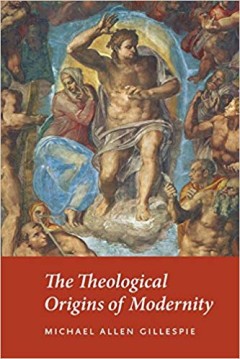
The Theological Origins of Modernity
Exposing the religious roots of our ostensibly godless age, Michael Allen Gillespie reveals in this landmark study that modernity is much less secular than conventional wisdom suggests. Taking as his starting point the collapse of the medieval world, Gillespie argues that from the very beginning moderns sought not to eliminate religion but to support a new view of religion and its place in huma…
- Edisi
- Cetakan ke-1
- ISBN/ISSN
- 978-0226-293-45-5
- Deskripsi Fisik
- xiii + 386 pg.; 23 cm.
- Judul Seri
- -
- No. Panggil
- 190 GIL t
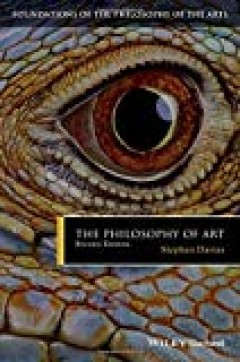
The Philosophy of Art
Written with clarity, wit, and rigor, The Philosophy of Art provides an incisive account of the core topics in the field. The first volume in the new Foundations of the Philosophy of the Arts series, designed to provide crisp introductions to the fundamental general questions about art, as well as to questions about the several arts (such as literature, music or painting). Present…
- Edisi
- Second Edition
- ISBN/ISSN
- 978-1-119-09165-3
- Deskripsi Fisik
- ix + 232 pg.; ils.; 23 cm.
- Judul Seri
- Foundation of the Philosophy of the Arts
- No. Panggil
- 701 DAV p
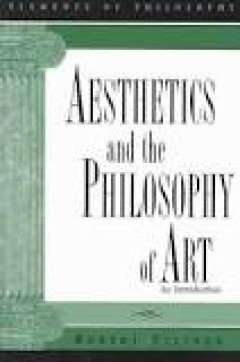
Aesthetics and the Philosophy of Art : An Introduction
Praised in its original edition for its up-to-date, rigorous presentation of current debates and for the clarity of its presentation, Robert Stecker's new edition of Aesthetics and the Philosophy of Art preserves the major themes and conclusions of the original, while expanding its content, providing new features, and enhancing accessibility. Stecker introduces students to the history and evolu…
- Edisi
- Cetakan ke-1
- ISBN/ISSN
- 0-7425-1460-9
- Deskripsi Fisik
- viii + 255 hlm.; 22 cm.
- Judul Seri
- -
- No. Panggil
- 111.85 STE a
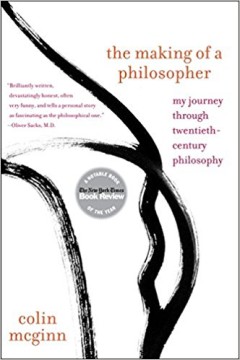
The Making of A Philosopher: My Journey Through Twentieth-Century Philosophy
The Making of a Philosopher follows Colin McGinn from his early years in England reading Descartes and Anselm, to his years in the states, first in Los Angeles, then New York. McGinn presents a contemporary academic take on the great philosophical figures of the twentieth century, including Bertrand Russell, Jean–Paul Sartre, and Noam Chomsky, alongside stories of the teachers who informed hi…
- Edisi
- -
- ISBN/ISSN
- 0060957603
- Deskripsi Fisik
- xii + 241 pg.; 20,5 cm.
- Judul Seri
- -
- No. Panggil
- 192 McG m
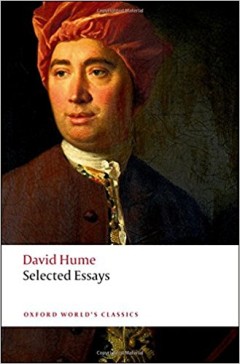
Selected Essays
In his writings, David Hume set out to bridge the gap between the learned world of the academy and the marketplace of polite society. This collection, drawing largely on his Essays Mortal, Political, and Literary (1776 edition), comprehensively shows how far he succeeded. As seen in these selections, Hume embraces a staggering range of social, cultural, political, demographic, and historical c…
- Edisi
- -
- ISBN/ISSN
- 0192836218
- Deskripsi Fisik
- xxvi + 410 pg.; 19,5 cm.
- Judul Seri
- -
- No. Panggil
- 192 HUM s
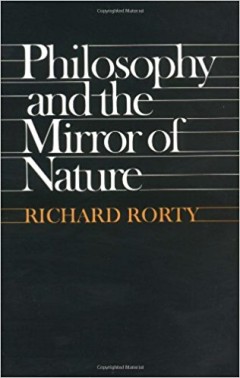
Philosophy and the Mirror of Nature
Philosophy and the Mirror of Nature hit the philosophical world like a bombshell. Richard Rorty, a Princeton professor who had contributed to the analytic tradition in philosophy, was now attempting to shrug off all the central problems with which it had long been preoccupied. After publication, the Press was barely able to keep up with demand, and the book has since gone on to become one of it…
- Edisi
- -
- ISBN/ISSN
- 0631129618
- Deskripsi Fisik
- xv + 401 pg.; 21,5 cm.
- Judul Seri
- -
- No. Panggil
- 191 ROR p
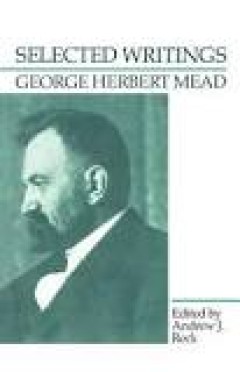
Selected Writings
The only collection of Mead's writings published during his lifetime, these essays have heretofore been virtually inaccessible. Reck has collected twenty-five essays representing the full range and depth of Mead's thought. This penetrating volume will be of interest to those in philosophy, sociology, and social psychology. "The editor's well-organized introduction supplies an excellent outli…
- Edisi
- -
- ISBN/ISSN
- 0226516717
- Deskripsi Fisik
- lxxii + 416 pg.; 20,5 cm.
- Judul Seri
- -
- No. Panggil
- 191 MEA s
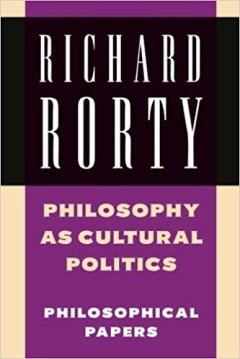
Philosophy as Cultural Politics: Philosophical Papers
This volume presents a selection of the philosophical papers which Richard Rorty has written over the past decade, and complements three previous volumes of his papers: Objectivity, Relativism, and Truth, Essays on Heidegger and Others and Truth and Progress. Topics discussed include the changing role of philosophy in Western culture over the course of recent centuries, the role of the imaginat…
- Edisi
- -
- ISBN/ISSN
- 9780521698351
- Deskripsi Fisik
- xii + 202 pg.; 22,5 cm.
- Judul Seri
- -
- No. Panggil
- 190 ROR p
 Karya Umum
Karya Umum  Filsafat
Filsafat  Agama
Agama  Ilmu-ilmu Sosial
Ilmu-ilmu Sosial  Bahasa
Bahasa  Ilmu-ilmu Murni
Ilmu-ilmu Murni  Ilmu-ilmu Terapan
Ilmu-ilmu Terapan  Kesenian, Hiburan, dan Olahraga
Kesenian, Hiburan, dan Olahraga  Kesusastraan
Kesusastraan  Geografi dan Sejarah
Geografi dan Sejarah